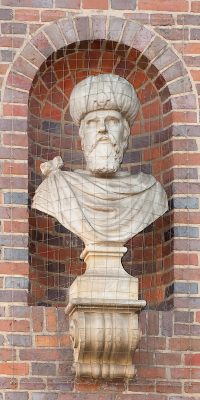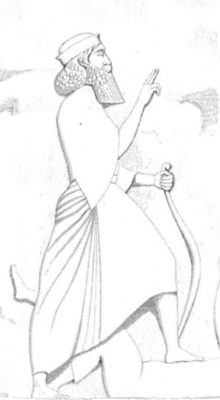Cyrus the Great and Darius the Great were rulers of the Achaemenid empire; the former was its founder, and the latter was the third king to rule the empire leading it to the height of prosperity. The two leaders had similarities, such as being mentioned in the Bible and achieving their goal to expand the Achaemenid empire.
In the Bible
Cyrus II and Darius are both mentioned in the book of Daniel in the Bible. The book’s subject, Daniel, served under Cyrus II, the Anshan king of the Achaemenid Empire, during his reign from 559 to 530 BC. Chapter 10 of Daniel chronicles him gaining information about the great war taking place in Cyrus’ third year of rule (Daniel 10:1).
Darius was also mentioned in the same book. Chapter 6, entitled Daniel in the Den of Lions, reveals that Daniel was elevated to a high position under Darius’ rule. It also went on to describe Darius’ decree in which people who would worship anyone but him would be punished. The king was forced to issue such a rule due to Daniel’s enemies.
Daniel continued to pray to God thrice a day despite the proclamation, prompting the Medes and Persians to report him to Darius. The king attempted to spare Daniel but failed. Consequently, Daniel went into the lion’s den and was saved by an angel. After which, Darius threw those who had advised him to create the decree into the lion’s den.
Expansion of the Empire
Cyrus defeated several adversaries to accumulate territory after starting with a relatively small kingdom. He defeated the Median, Lydian, and Neo-Babylonian empires, all of which he combined into the Persian empire. According to the Greek historian Herodotus, the powerful king knew of Darius as the young man was growing up and was paranoid of him attempting to usurp the throne.
After his rule, his son Cambyses succeeded him in 530 until July of 522 BC, when he died of a leg wound on his way to Syria. There are varied accounts of how Darius rose to the throne, but the two sources are Herodotus in his chronicle of the Greco-Persian Wars, Histories, and the Greek historian Ctesias in his historical text, Persika.
Herodotus wrote that Cambryses’ younger brother named Bardiya became the next king. At the same time, Ctesias believes that Bardiya (who he gave the name Sphendadates) was impersonated by a magus that went by the name Gaumata. Historians speculate that Darius influenced Ctesias’ version to save face for overthrowing Cyrus’ son.
During Darius’ rule, the empire’s wealth inflated as his control reached the Indus Valley, Central Asia, Thrace, and Egypt. This was one of the biggest combinations of territories at the time. Consequently, Darius added many roads to encourage travel, trade, and communication. He also created a system of governors to improve supervision over each area. As a downside to the success and development of the empire, the king had to deal with many rebellions.

